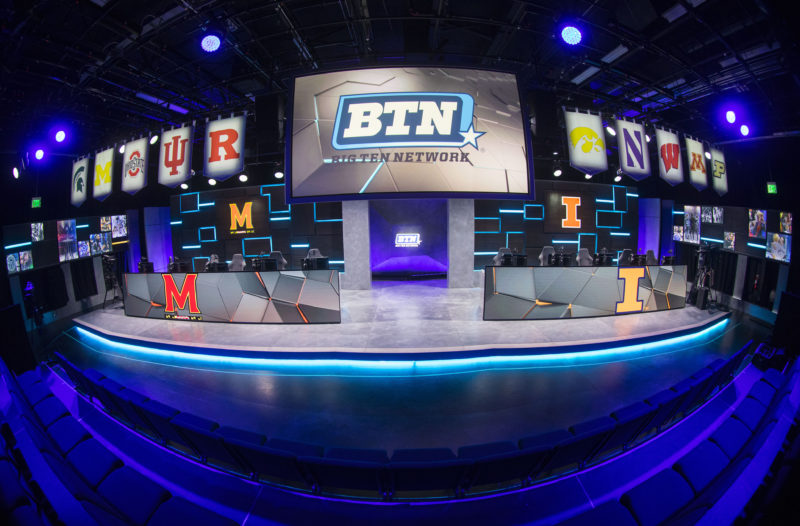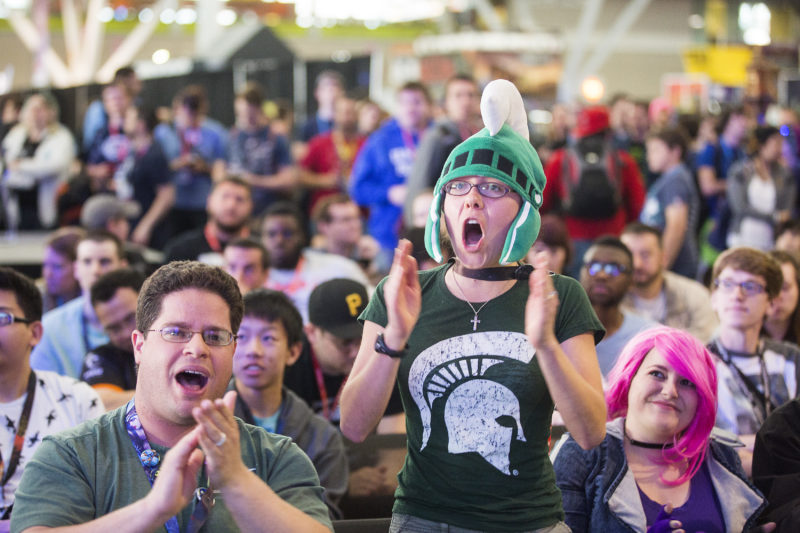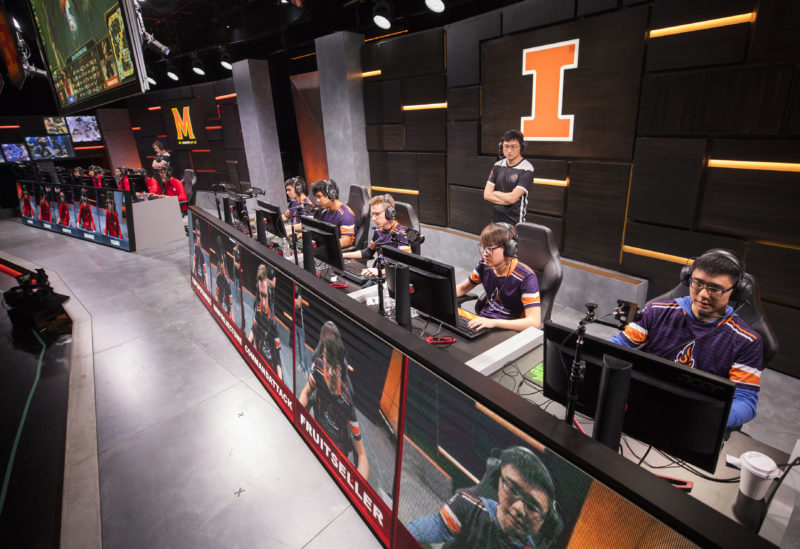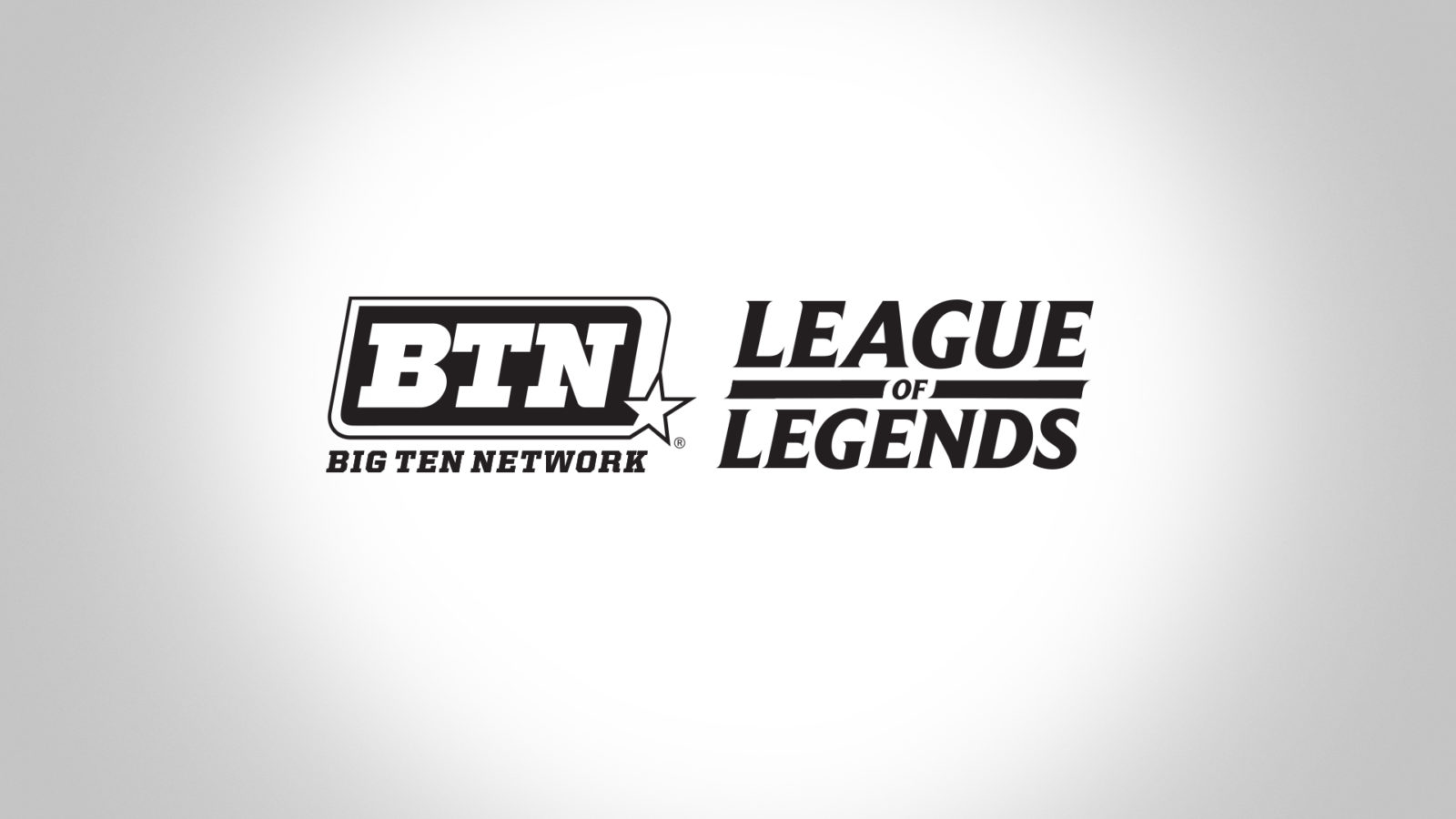Riot Games made multiple moves in the League of Legends collegiate esports scene over the past week with two conference partnerships.
The gaming company first partnered with Peach Belt Conference, a National Collegiate Athletic Association (NCAA) Division II conference. Riot then announced Wednesday the renewal and extension of its Big Ten Network partnership through 2019.
The Daily Walkthrough spoke with Riot Games’ Michael Sherman and Peach Belt’s Ken Gerlinger about what this means for the collegiate esports scene and League.

Riot Games and Big Ten Network (Credit: Riot Games)
Peach Belt’s entry into collegiate League started with a stumble: It launched its League championship series before telling Riot.
“We actually announced the game before we talked to Riot about it,” Gerlinger laughed. “In retrospect, that was not the way to go … We announced we were doing it and then it was hanging over our heads: ‘Are they going to be OK with it?'” But he said Riot seemed unfazed when they reached out in the fall of 2017, and introduced them to the League of Legends College Championship. Peach Belt didn’t know about it at first and had originally intended to do its own conference championship.
As for the Big Ten Conference partnership extension, Sherman told TheDW that Riot is focusing on “what’s good for Big Ten students and that Big Ten family.” That includes bringing more awareness to “preexisting” communities on Big Ten campuses and fostering long-term campus cultures.
Sherman explained that Riot doesn’t make it a habit to pitch League to schools, and Gerlinger said his conference decided on League because it “was at the top of the list” of “the most popular games.”
The Peach Belt conference first convinced the universities’ student life and affairs groups. Then, the board of directors, which is made up of the university presidents, signed off. Finally, they took what Gerlinger called “the wave of the future” to the individual schools.
“One of the first things we found it is there is kind of a culture gap between traditional athletics and the esports world,” Gerlinger told TheDW. “Working through student life offices as opposed to athletic departments proved to be our best venue to reaching players.” Certain colleges will host esports games in conjunction with traditional games like basketball. Rewards, recognition and treatment from the conference office will be the same.

Collegiate League of Legends (Credit: Riot Games)
They netted eight out of 12 universities to particiapte. Gerlinger hopes they will be able to convince the remaining four in “the next couple weeks.”
The more colleges and universities that become involved in esports, the more teams have to worry about their players being poached by professional teams. University of California, Irvine esports acting director Mark Deppe lamented problems his program encountered when one of his League players, Jung “Youngbin” Young-bin, was snapped up by Team Liquid for a period of time.
While Sherman was unable to give specifics, he said Riot is already working on — and intends to — implement rules and structures in 2018 to “support” collegiate League, professional League and their intersection.
“We will be rolling out changes this year that help support a cleaner transition between college and professional [play], if that does happen,” Sherman said. “I think we want to avoid the Youngbin situation, whether it disrupted the team or the situation it put him in. We want to put in protections for that. Also, the permanent partnerships [franchising] kind of, Team Liquid made a pretty reactionary move there. The permanent partnerships help prevent situations like that in the future.”
Riot introduced traditional sports-style franchising to the North American League of Legends Championship Series in 2018.
The company won’t be heavily involved in all aspects of collegiate esports. Gerlinger said Riot has been hands-off with things like broadcasting rights and production and left it to Peach Belt’s purview. Peach Belt, Riot and an undisclosed company will be meeting soon to discuss broadcasting. An official announcement will be made sometime in late January.
Sherman also speculated that, in the future, Riot could be open to introducing custom “skins” to the team that wins its College Championship or other “in-game content.” Every year, the players of the winning team at Riot’s professional World Championship get to pick their favorite in-game character to receive a special “Worlds” skin. That’s not something that will happen anytime soon, and would depend entirely on how big collegiate League grows.
“There are no plans at this time. In general, when we think about skins, we look at it as a global opportunity. Right now, it’s probably not the right fit to use that for college,” Sherman said. “Everything is subject to change as we continue to grow. We’ll do what we think is the best for the ecosystem. That means, how do schools invest? What are those revenue streams like for them? Opportunities like in-game content are a part of that puzzle down the road.”
Riot’s goal is to eventually see League in every North American conference, Sherman explained. Last year, they witnessed major movement on the collegiate level at the Learfield Intercollegiate Athletics Forum. The event has college sports’ biggest figureheads in attendance to discuss college and athletics.

Riot Games and Big Ten Network (Credit: Riot Games)
“In 2016, there wasn’t a single mention of college esports outside of a discussion around how esports doesn’t have to travel,” Sherman told TheDW. In 2017 “for the first time, they had an esports panel. Every panel there that could have talked about it did. You had a panel of all the other major commissioners: Pac-12, SEC [Southeastern Conference], ACC [Atlantic Coast Conference], The Big 12. Everyone had something to say about esports that year.”
All those “somethings” weren’t necessarily positive, Sherman admitted, but argued “it’s still a sign of the times.”
Now that esports is entering the mainstream, companies like Riot and conferences like Peach Belt have to navigate the NCAA’s foothold and any potential involvement. The NCAA’s board of directors held a meeting in October of 2017 to discuss collegiate esports.
Both sides told TheDW they had met with NCAA officials. Sherman said he couldn’t “see a world in which they come in and try to disrupt everything that’s going on,” and Gerlinger said Peach Belt has “been in contact with them and kept them appraised of everything we’ve been doing. They might actually send somebody down to watch our tournaments in March.”
On top of the NCAA, monetization on both sides is important to keep in mind.
Gerlinger told TheDW that Peach Belt needs to prove itself in the short term before Riot will allow “use [of] any of their branding or marketing materials in association with any sponsorships.”
And Sherman stressed profitability isn’t Riot’s focus with collegiate esports.
Looking to the future, Gerlinger said League won’t be Peach Belt’s only esport. They’re taking it slow in their first year but once things get rolling they have plans to expand. “We are talking about adding other games. I’m not at liberty to tell you what right now, but we are having those discussions.”
While Gerlinger didn’t name specifics, games that are options could include Blizzard Entertainment’s Overwatch, Psyonix’s Rocket League and Valve’s Dota 2 and CS:GO. Collegiate Overwatch and Rocket League already have TESPA and Valve’s games have their Collegiate Starleagues.
Signup for The Daily Walkthrough and follow us on Twitter, Facebook and YouTube

